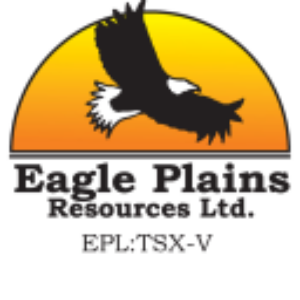Eagle Plains Acquires Elizabeth Lake Critical Metals Deposit
CRANBROOK, BC / ACCESSWIRE / March 28, 2024 / Eagle Plains Resources Ltd. (TSXV:EPL)(OTC PINK:EGPLF) has acquired by staking, a block of claims that cover the historic Elizabeth Lake Cu-Ag VMS deposit. The claims cover an area of 1266 ha and are located 21 km north of La Ronge, Saskatchewan. The claims are
See Elizabeth Lake Property Map here
Elizabeth Lake Geology and History
The Elizabeth Lake property hosts metamorphic and intrusive rocks which are dominantly volcanic in origin and thought to be formed as an island arc complex. The geology is structurally complex with polyphase deformation and metamorphism.
The deposit is made up of numerous lenticular mineralized zones hosted in shear zones within sericite schists. Mineralization consists of lenses, pods, veins and disseminations of pyrite, pyrrhotite and chalcopyrite. Sphalerite is found in small zones of calc-silicate gneiss that are separated from the main zones. Galena is reported locally. Chalcopyrite occurs in the more quartz-rich zones. The deposit area has been tested by 36 diamond drill holes for a total of 10,147m (33,291 feet) of core. Select historical drill core is stored at the Saskatchewan Precambrian Geological Laboratory in La Ronge.
The mineralization, which lies in a northeast-trending fault zone that has been affected by dextral crossfaulting, has been grouped into two main lenses - the North Zone and the South Zone. The mineralized zone has a strike length of about 625 m (2050.5 ft). The two lenses, which are approximately 365 m apart, parallel minor fold hinges in the vicinity. The lenses have a moderate to steep plunge. The North Zone is 330 m (1082.7 ft) long, 2 to 22 m (6.6 to 72.2 ft) wide and extends to a vertical depth of over 250 m (820.2 ft). The South Zone is 240 m (787.4 ft) long, 2 to 22 m (6.6 to 72.2 ft) wide and extends vertically approximately 150 m (492.1 ft). Both Zones are thought to be open to depth.
The following table outlines significant historical drill intercepts:
Table 1- Significant Drill Intercepts-Elizabeth Lake Project
Hole ID | Intersection (m) | True Width (m) | From(m) | To(m) | Cu(%) | Ag (g/t) |
UV-1 | 32.5 | 21.9 | 101.7 | 134.2 | 0.59 | 7.5 |
UV-2 | 31.8 | 21.5 | 52.6 | 84.4 | 0.56 | 5.3 |
including | 16.7 | 10.7 | 67.7 | 84.4 | 0.79 | 5.6 |
UV-3 | 17.2 | 13.8 | 65.4 | 82.6 | 0.60 | 6.5 |
UV-4 | 23.8 | 17.1 | 131.2 | 155.0 | 0.75 | 7.5 |
including | 2.3 | 1.7 | 157.9 | 160.2 | 0.80 | 10.9 |
including | 4.0 | 2.9 | 172.8 | 176.8 | 0.93 | 4.3 |
including | 7.8 | 5.6 | 191.8 | 199.6 | 0.73 | 7.8 |
UV-5 | 53.4 | 36.6 | 75.4 | 128.8 | 0.65 | 9.0 |
including | 27 | 19.8 | 75.4 | 102.4 | 0.91 | 6.5 |
including | 8.2 | 6.0 | 92.7 | 100.9 | 1.53 | 10.6 |
**UV-8 | 20 | unknown | unknown | unknown | 0.85 | |
**UV-12 | 27.4 | unknown | unknown | unknown | 0.69 | |
**UV-13 | 13.7 | unknown | unknown | unknown | 0.79 | |
and | 36.6 | unknown | unknown | unknown | 0.55 |
** Saskatchewan Mineral Assessment File 73P06-0061
In 1967, C. Isbestor discovered molybdenite mineralization in a pegmatite just west of Elizabeth Lake (SMDI 0746) and shortly after discovered the Elizabeth Lake copper mineralization (SMDI 0733) situated 3 miles north of Nemeiben Lake. This started a small rush to the area in 1968 with Studer Mines Ltd acquiring claims and completing trenching on the showing area.
Later in 1968, the area was optioned to Noranda Explorations Co. Ltd who undertook a ground EM and geological mapping survey and additional trenching in the area of the exposed copper mineralization. Noranda followed this up with a 21 hole (21,145 feet / 6445m) diamond drilling program. The drilling
intersected a 2800 ft (853m) long mineralized zone to a depth of 375 ft (114.3m) at the south end and to a depth of 1375 ft (419.1m) at the north end. Drill hole intersections ranged from 0.01 to 0.12 oz./ton Au, 0.18 to 1.1 oz./ton Ag, 0.05 to
In 1969, Canadian Nickel Co. Ltd., drilled on two holes drilled on claims that straddle Elizabeth Lake. One hole tested the North Zone and one tested the South Zone. Assay results for hole # 38418 in the North Zone range from 0.5 to 6.6 % Cu with long intervals from 441 to 600 feet being in excess of
In 1969, Uranium Valley Mines Ltd optioned the property from a syndicate which included Studer Mines, and in 1970, 13 holes, totalling 8,965 ft (2732 m), were completed on the North Zone and 4 holes, totalling 3,181 ft (969.6 m) were completed on the South Zone. Trenching, mapping, ground EM and IP surveys were also completed. The UV series of drill holes resulted in a drill-indicated reserves calculation for the deposit. In 1971, probable reserves were given.
In 1981, Cameco entered into a joint venture agreement with Studer Mines. Studer Mines subsequently assigned its interest in the property to Benz Gold Resources and between 1981-1983 Benz Gold completed INPUT and magnetic survey airborne geophysics and limited ground geophysics near the deposit.
In 1991, Claude Resources Inc. staked the deposit area. In 1994, Claude completed prospecting and rock sampling over the showing to check for possible gold zoning. Significant concentrations of gold or copper in the host rocks were not located by this work. In 1996, Claude Resources completed a core petrographic study using some of the historic Noranda drill holes.
The last public data on the property was in 2012 by Kenna Capital Corp. who flew an airborne electromagnetic and horizontal magnetic geophysical survey that included part of the current Elizabeth Lake property. The survey identified a weakly conductive response over the Elizabeth Lake deposit, and a stronger conductor east of the deposit area that has not been tested, within the current tenure boundary.
The above results were taken directly from the SMDI descriptions and assessment reports (SMAF) filed with the Saskatchewan government. Management cautions that historical results were collected and reported by past operators and have not been verified nor confirmed by a Qualified Person, but form a basis for ongoing work on the subject properties. Eagle Plains' management cautions that past results or discoveries on proximate land are not necessarily indicative of the results that may be achieved on the subject properties.
A number of different historical resources have been estimated for the Elizabeth Lake Deposit. The first published resource was by Uranium Valley Mines in 1970 with 4,340,000 short tons grading
Eagle Plains' management considers these estimates to be historical in nature and cautions that a Qualified Person has not done sufficient work to classify the historical estimates as current mineral resources or mineral reserves in accordance with National Instrument 43-101. These estimates do not comply with the definitions of current mineral resources or mineral reserves definitions prescribed by National Instrument 43-101 or the Canadian Institute of Mining, and are disclosed only as indications of the presence of mineralization and are considered to be relevant as a guide for additional work. The historical models and data sets used to prepare these historical estimates are not available to Eagle Plains, nor are any more recent resource estimates or data. All references to historic resources are taken from SMDI 0733.
A detailed compilation and interpretation of available data from historical work programs at Elizabeth Lake has begun and will lead to recommendations for future work. The Elizabeth Lake projects adds to Eagle Plains' Saskatchewan VMS Cu portfolio, which also includes the Schotts Lake and Brownell Lake projects.
Charles C. Downie, P.Geo., a "qualified person" for the purposes of National Instrument 43-101 - Standards of Disclosure for Mineral Projects and a director of Eagle Plains, has reviewed and approved the scientific and technical disclosure in this news release.
Update on the Sale of the Lone Pine Project
Eagle Plains is pleased to announce that it has entered into a mineral property purchase and sale agreement with Quartz Mountain Resources Ltd. (TSXV: "QZM") pursuant to which QZM will acquire a 100-per-cent interest in the Lone Pine mineral claims near Houston, B.C. The purchase price for the transaction is 750,000 common shares of QZM. The property is subject to a 2.0-per-cent net smelter return (NSR) royalty payable to Eagle Plains, of which a 1.5-per-cent royalty can be repurchased at any time by QZM with a payment of
Update on Puzzle Lake Property Option
Eagle Plains reports that it has received notice from option partner Canter Resources Corp., that Canter has elected not to proceed with its option on the 3261 ha Puzzle Lake property and the Option Agreement will be terminated.
About Eagle Plains Resources
Based in Cranbrook, B.C., Eagle Plains is a well-funded, prolific project generator that continues to conduct research, acquire and explore mineral projects throughout western Canada, with a focus on critical metals integral to an increasingly electrified, decarbonized economy.
The Company was formed in 1992 and is the ninth-oldest listed issuer on the TSX-V (and one of only three that has not seen a roll-back or restructuring of its shares). Eagle Plains has continued to deliver shareholder value over the years and through numerous spin outs has transferred over
Eagle Plains' core business is acquiring grassroots critical- and precious-metal exploration properties. The Company is committed to steadily enhancing shareholder value by advancing our diverse portfolio of projects toward discovery through collaborative partnerships and development of a highly experienced technical team.
Expenditures from 2010-2023 on Eagle Plains-related projects exceed
Throughout the exploration process, our mission is to help maintain prosperous communities by exploring for and discovering resource opportunities while building lasting relationships through honest and respectful business practices.
On behalf of the Board of Directors
"C.C. (Chuck) Downie" P. Geo
President and CEO
For further information on EPL, please contact Mike Labach at:
1 866 HUNT ORE (486 8673)
Email: mgl@eagleplains.com or visit our website at http://www.eagleplains.com
Cautionary Note Regarding Forward-Looking Statements
Neither the TSX Venture Exchange nor its Regulation Services Provider (as that term is defined in the policies of the TSX Venture Exchange) accepts responsibility for the adequacy or accuracy of this release. This news release may contain forward-looking statements including but not limited to comments regarding the timing and content of upcoming work programs, geological interpretations, receipt of property titles, potential mineral recovery processes, etc. Forward-looking statements address future events and conditions and therefore, involve inherent risks and uncertainties. Actual results may differ materially from those currently anticipated in such statements.
SOURCE: Eagle Plains Resources Ltd.
View the original press release on accesswire.com






